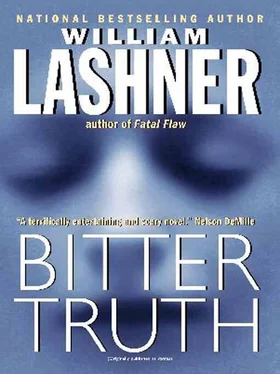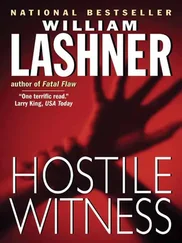He turned to look at Caroline, the shadows on his face dancing from the candlelight. “She told me so herself,” he said.
“Who told you?” demanded Caroline.
“Emma,” he said. “She told it all to me.”
He spun around, walked out of the room, and climbed down the stairs. I started shaking from the cold as I watched him go. I turned to Caroline and we stared at each other for a moment before hustling out to follow. We caught up to him in the parlor.
“Franklin, dammit, what are you talking about?” said Caroline. “Who told you all this?”
“Mrs. Poole, Emma’s mother, died right here,” said Harrington. “In her last breath she cursed once again Claudius Reddman, who was still then alive in the big house on the hill. There wasn’t much left to curse; his lungs were tumorous and he medicated himself into a stupor with laudanum every night to keep his whole body from shaking, but that didn’t stop her. She cursed your great-grandfather, Caroline, and all his progeny, much like her husband had fifteen years before. This was just after your grandfather was shot dead by his son, just a few days after actually, and, with one Reddman daughter missing and one Reddman daughter dead, it looked like the curses were all coming true. I wonder if she died at least a little happy, seeing tragedy so visibly visited upon her enemies. Think about what it is to live a life where your only joy is someone else’s tragedy, think of that, Caroline. She was ruined all right, but not by your great-grandfather, no matter how much he stole from that family.”
“Stop it, Franklin,” said Caroline. “Just stop it. I don’t want to hear anymore. In all these years, how come you never told me any of this before?”
“I didn’t think you were interested in anything but your own disasters.”
“Oh, just go to hell,” she said. She walked over to the fireplace and looked up at the old drawing of Elisha Poole tacked above the mantelshelf. “What do you mean she told you so herself?” she asked quietly.
“When I was eighteen,” said Harrington. “It was the spring while I was waiting to hear from Princeton. Your grandmother sent me to her. Emma was living in the Cambium, in the very same apartment where Jacqueline died. Your grandmother was supporting her, paying the rent, paying for a nurse to care for her. She didn’t live long after my visit, almost as if she were waiting for me to come to her before she died.”
The chill I had been feeling the last few minutes grew ferocious. I couldn’t tell now if it was the temperature or the dawning realization. “Why would the Poole daughter be waiting for you?” I asked.
“Because, as I found out that day, I’m her grandson,” said Harrington.
Caroline spun around at that and spit out, “Fuck you!”
“Through my father,” continued Harrington. “Although I didn’t know it at the time, that was why Faith took me out of the orphanage and brought me to Veritas, why she provided for me and paid for my education. For the same reason she was taking care of Emma. Because we were both Pooles. It was Faith who discovered that you and I were lovers, Caroline, which is why she finally introduced me to my grandmother.”
“And that’s why we could never be together?” said Caroline. “Tell me, you asshole, is that why?”
“The tragedy of the Pooles,” said Harrington, “was not that their business was stolen from them by your great-grandfather. The tragedy of the Pooles was that they allowed themselves to be tragic. They defined themselves by what the Reddmans had taken from them, by what the Reddmans had become. I was never going to let that happen to me.”
“We were in love,” groaned Caroline.
“I thought I’d leave and be done with it all when I found out,” said Harrington. “But I let your grandmother put me through Princeton, sort of as a recompense. I figured why not, and then I let her put me through Wharton, and then when I was offered the job at the bank, it was naturally advantageous to have her trust accounts under my aegis, and pretty soon I was neck-deep in Reddman money, so it didn’t quite work out like I had thought. But I wasn’t going to join the family, Caroline, at least not that. That I would never do.”
“You said you loved me.”
“I did.”
“And you never told me.”
“I didn’t know until that day.”
“And you didn’t tell me then.”
“How could I?” said Harrington, a soft pain in his voice. “You were a Reddman and I was a Poole. How could I…”
“Did you ever think, Franklin, did you ever consider that by leaving me you became just as much a victim as the rest of them? Did you ever think of that, you asshole?”
He didn’t have a chance to answer before she was out the door.
Harrington and I both acted as if we were going to go after her, but then our eyes met and we stopped. I felt for an instant like an old-time gunfighter, waiting for the man standing across from me to make his move.
“Did you hire Jacqueline’s killers?” I asked finally.
“You didn’t listen to a word, did you?”
“If you didn’t, who did?”
“I don’t know.”
“Where’s your father?”
He looked at me for a moment. “He’s long gone,” he said. “He passed away from us years and years ago.”
“Any other Poole relatives you know about?”
“None.”
“Who’s Wergeld?”
“That’s the name of the trust I told you about.”
“Who’s the beneficiary?”
“I don’t know.”
“You come back here often?”
He looked around and shrugged. “Not in over ten years,” he said.
We stared at each other a moment more, our hands twitching as if we really did have guns on our hips. I nodded my head to the wall above the fireplace where the primitive drawing of Elisha Poole was tacked. “You put that up?”
He looked at it for a moment. “No,” he said.
“You know she’s right, of course. If you loved her and let her go just because she was a Reddman and you were a Poole, you’ve given in as badly as your grandmother and your great-grandparents.”
“What the hell do you know about it?”
I thought on that for a moment. “You’re right,” I said. “Not a thing.”
On our way to the door I stopped and told Harrington I had left something in the house. He looked at me gratefully, as if it were a cheap ploy to allow him some time alone with Caroline. I nodded and slipped him half a smile and let him think what he was thinking as he walked out to her alone.
It was a cheap ploy, yes, but not to give him time alone with Caroline. When he left I turned and walked through the kitchen to the dining room and the massive breakfront with the one drawer locked. Under the beam of my flashlight I took out my wallet and extracted the ornate key with the bit like a puzzle piece attached to the shank, the key we had found in the metal box, in the envelope marked “The Letters.” Slowly I inserted the key into the lock in the drawer. It slipped in as though the key and the lock were made one for the other, which they were, because without much effort the key turned, the bolt dropped, the drawer slid open.
Inside were packets of letters, each yellowed and brittle, tied together with pale ribbons that had once held color but no longer. One by one I stuffed the bundles into my pack. Among the letters was a small book of scaling brown leather. I opened it to the title page. Walden by Henry David Thoreau. I took that too. Beneath everything was a heavy old envelope, tied shut with a string. The words on the outside, written with a masculine hand, read: To My Child on the Attainment of Majority .
I stuffed the envelope into my pack with the rest of the stuff and headed out the door.
Читать дальше












